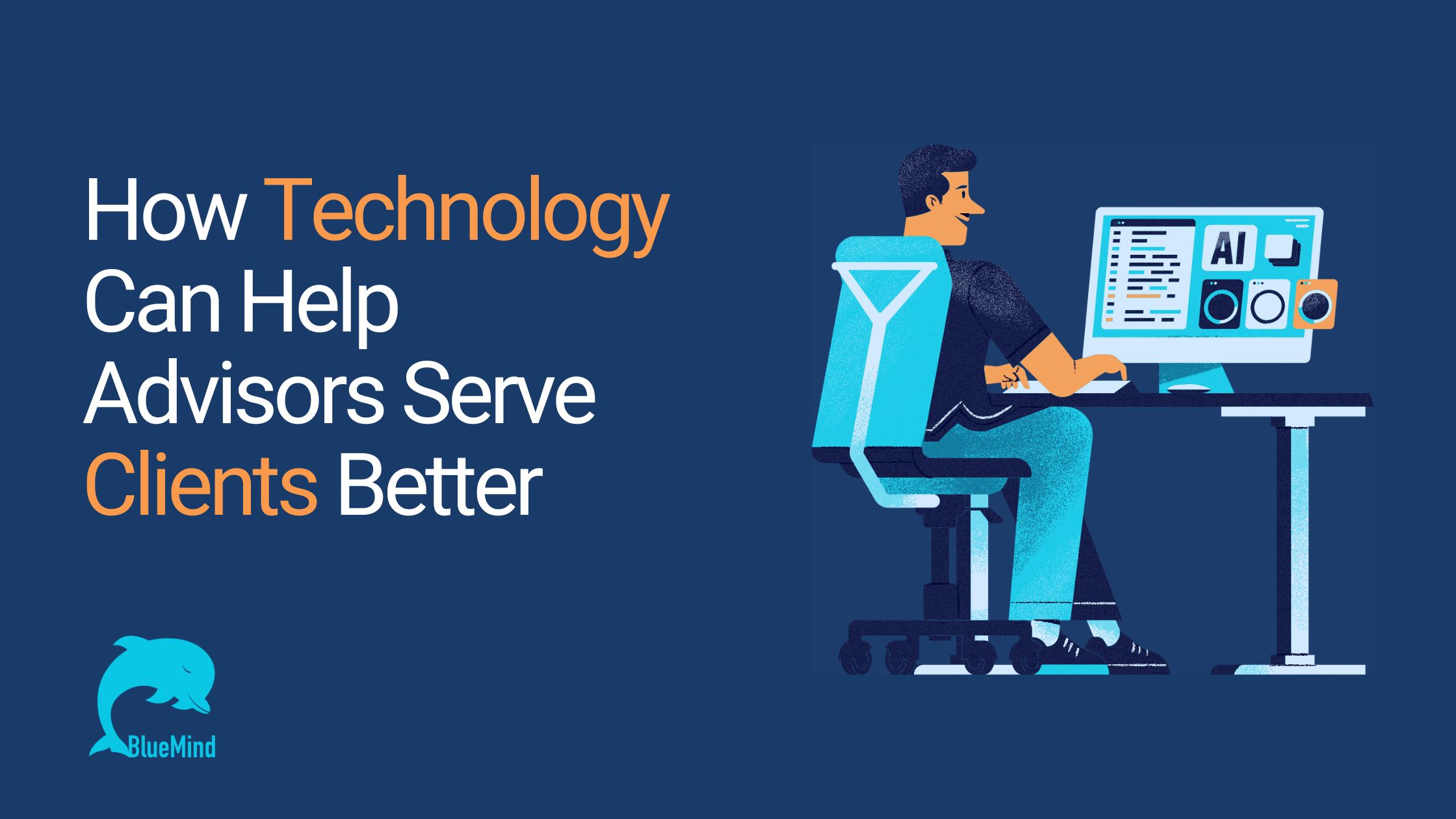Expert Financial Advisors Share 5 Things They Wish They Knew
It is common for people to experience feelings of apprehension, hesitancy, and fear of the unknown when they step into their new careers. The same goes for rookie financial advisors as you begin your endeavor with the immense responsibility of helping clients with their mortgage, insurance, retirement plans, and taxation, to name a few.
And of course! Don’t forget the simple good feeling that comes from helping others. After all, that’s what being a financial advisor entails: helping others find solutions to their financial problems.
Fear Not! You Are Not Alone
Take solace in the knowledge that you are not going to be the first financial advisor out there. There have been innumerable ones before you and many came, saw, and conquered the obstacles they faced as a rookie financial advisor.

1. Don’t Just Show Them The Way
“People don’t know what they want until we’ve shown them.” - Steve Jobs
As a financial advisor, you will often feel frustrated to see clients not following the advice that they paid you for. Some people don’t just readily take action on your advice due to uncertainty, while others just feel too reluctant to make any efforts.
Leif Krist Jansen says that some clients require you to be more proactive and get more involved when encouraging them to follow through with the actions they might find difficult to manage on their own.
As the founder and president of FiveYearFireEscape, Leif asserts, “even if people are paying for advice or have limited time with it. They will do almost no work to better themselves. Some of the most powerful financial moves are so simple, like cutting back spending, and people just won’t do it. I’ve found the best way to force people to do simple things is to literally do it with them. Sometimes all people need is a little push and they can take it from there to really improve their lives.”
2. Learn to Manage Time Efficiently Early On
One attribute that every financial advisor must excel at is managing time efficiently. This skill does not come easy as some people tend to be great procrastinators.

The earlier you learn to manage your time well, the easier it will be to handle the pressure and workload of a growing business. Once you end your day productively, your personal hours and downtime will be stress-free.
The sooner you allow time management skills to become second nature to you, the sooner you will realize the potential you possess by adopting a systematic routine that can improve your efficiency.
Brandon Steele, co-founder, and CEO of Mainsail Financial Group shares,
“In my early years, I wish I had known the importance of my efficiency and not wasting time...I wish I had worked on time management early in my career and realized how much you can truly get done if you are cognizant of how you spend your time.”
As an experienced financial advisor of an independent financial planning firm in Bellevue, he recommends,
“If you can separate your day into blocks for the most important tasks and make sure to get things done that are most critical during prime hours, you can focus on the rest when you have time in the off-hours. Every minute counts, and the more you can squeeze out of a day, the more you will realize the compounding effects of this over time.”
3. Make That Human Connection
“The art of conversation lies in listening.” — Malcolm Forbes
Just as for every career that involves human interaction, a financial advisor should also learn interpersonal skills. This is better to learn early on so that you may learn to communicate and bond well with your clients.
A financial advisor must exude empathy while clients share the intimate details of their private lives. You must learn to read and understand the emotions of your client as they discuss with you their apprehensions for their future. Sometimes, you just have to learn to listen to them vent.
Remember, if you are unable to relate to people or understand where your client is coming from. you will never be able to offer them advice that they will be able to follow.
Andy LaPointe a national sales manager for a digital asset startup, author, founder of Crypto Wisdom and has with 15 years of experience as a registered investment advisor and mutual fund wholesaler, says “as a financial advisor, we are told secrets from clients, they wouldn't tell anyone else. For example, clients will tell you things like, they really don't want to leave their money to their lazy kids. Or, that they just found out their spouse is having an affair. It is amazing the things clients will tell their financial advisor.
He emphasizes that "the reason is there is so much emotion attached to money, many immediately attach that emotion to those they trust to manage their money. I wish this would be told to first-year financial advisors, so they fully understand the tremendous responsibility they have to not only provide financial guidance but also be a sounding board for intimate details, too.”
4. Become a Student
It is often said that in order to be a good teacher, one must first learn to be a good student.

As a financial advisor, you will spend your career explaining and teaching on how to follow through with the strategies you advise in order for them to achieve their financial goals. You will need to become a teacher but in order to teach well, you must never stop the learning process.
Many rookies advisors, once stepping into the field, wrongly assume that their learning period is over and now is the time for action when in fact some of the most important lessons that you may learn in your life begin from the day forth you start your career as a financial advisor.
Scott Stanley, an experienced Certified Financial Planner (CFP) and founder of Pharos Wealth Management, advises you not to waste your rookie years and acquire the knowledge you require to learn the craft of your industry as much as possible.
He says, “If I could reach out to a rookie advisor to give them one piece of advice, it would be to become a student of the industry. I realize now how little I knew when I was first starting. I stumbled through the early years somewhat directionless because I didn’t have a dynamic understanding of the industry. If I spent the time to learn about all the different ways a financial advisor could approach their craft, it would have given me a better, more intentional direction. Frankly, it would have gotten me to where I am now a lot faster."
Scott mentioned that there are some great resources available on the internet such as “Kitces”, which is on top of our recommended podcasts for financial advisors.
5. Get Those Credentials Fast
So now you know your learning process should never stop even after starting off your career as a financial advisor. However, every industry is teeming with competition and in order for you to stay a worthy competitor, you make every effort possible to raise your level up a notch. That requires you to go that extra mile by getting your credentials as early on as possible.
As someone who has been a part of the competition out there, Scott Stanley suggests that rookie financial advisors waste no time in getting themselves certified early on in their career as he did.
He suggests, “Get your credentials as soon as you can. Earning your CERTIFIED FINANCIAL PLANNER™ designation is the best process a rookie advisor can go through. It’s hard. It takes a ton of time. It’s so worth it. The knowledge you walk away with is invaluable and it’ll give you an edge over the rest of the financial professionals out there.”
[Bonus] Switch To Digital Documentation
The world is choosing to go digital in every aspect of life nowadays and the traditional pen and paper processes come with non-labour expenses, staff required to handle the paperwork, shipping costs and high probability of human errors.
John Whitehead, a managing director at Alan Boswell Group says, “with compliance and audit trails becoming so important, I would recommend… to switch to digital documentation.” Not only will this save you time and prove to be more efficient, it will also ensure you “remain compliant and secure” and is also more cost-effective.
Final Thoughts
They say “experience is the best teacher” and truly only through your mishaps and failures will you realize that you have learned some of the best lessons. Don’t allow yourself to lose faith in yourself or the industry you have chosen because through perseverance and dedication you will become a successful financial advisor.
Mr. Stanley further goes on to say, “ I’ve learned an incredible amount through the many failures and mistakes I encountered while building my business. I just wish someone spelled it out for me in my rookie years – it sure would have saved me a lot of time and heartache! The silver lining of that heartache is that I survived those experiences and came out stronger on the other side...Be who you are. It’ll be that much more satisfying to wake up every day and sit across the table from a client that genuinely likes working with you.”




